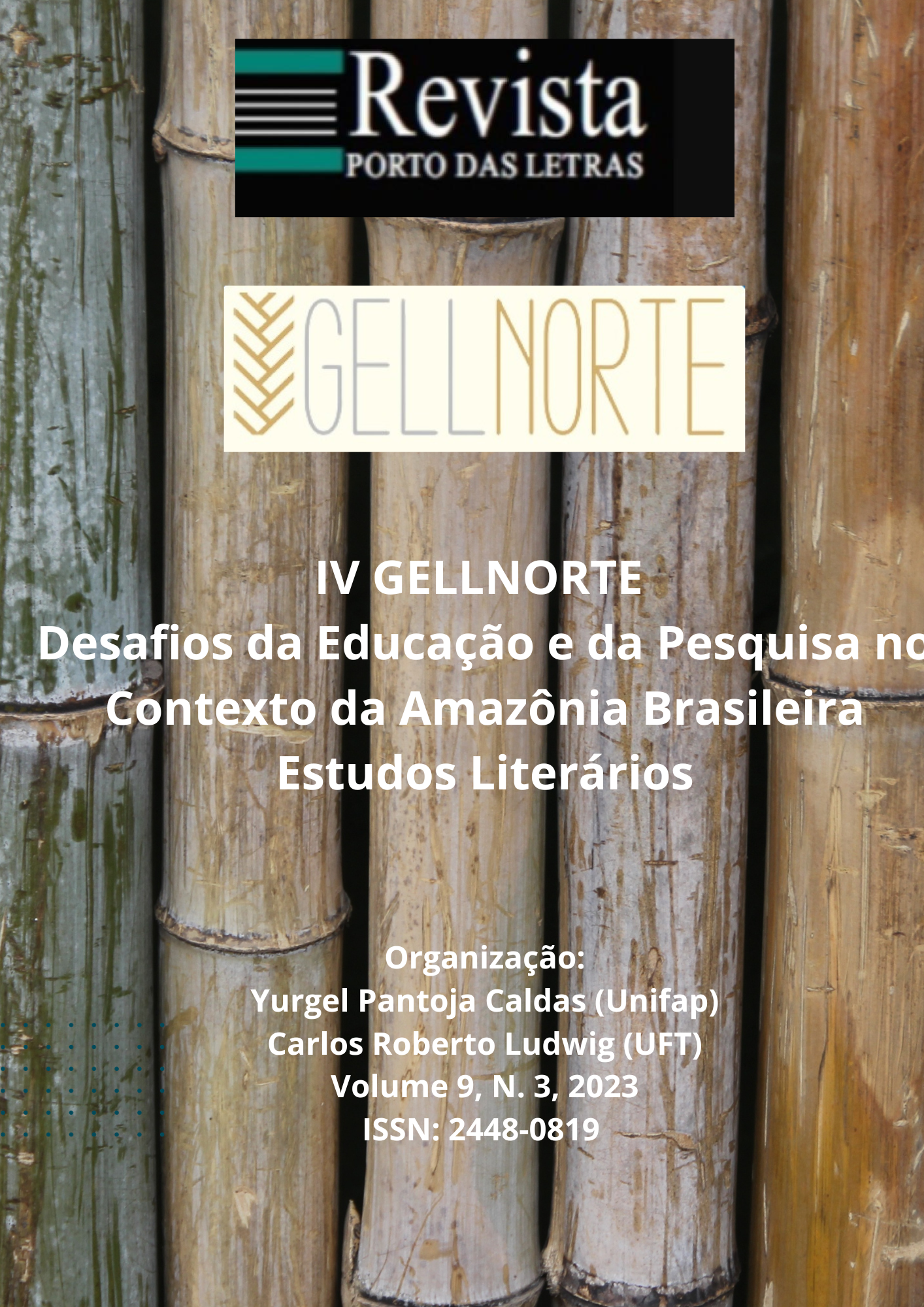THEATER AS A STRATEGY FOR READER FORMATION
Abstract
ABSTRACT: The objective of this article is to demonstrate the relevance of a work based on the language of theater as a way to stimulate students to approach the fictional universe, in order to optimize the teaching of literature and Portuguese language through literary literacy and discursive/textual genres. In this perspective, based on the concept of active methodologies (BACICH; MORAN, 2018), it is proposed the execution of a project aimed at the assembly of a theatrical piece created by the students. The theoretical foundation, based on socio-interactionism (BAKHTIN, 1997), counts on authors such as Boal (2009), Spolin (1979 and 2011), and Koudela and Santana (2005) regarding the theoretical principles of theater. While Candido (1995, 2002) and Lajolo (2004) provide subsidies about the conceptions of reading and the importance of literature in the formation of the individual, Cosson (2014) and Soares (2004) contribute to the framework about literary literacy. The methodology covers all aspects inherent to the assembly of a play, from the study of the specificities of the dramatic text to the characteristics of body language. On the other hand, there are also issues such as transposition of textual genres, linguistic analysis and intertextuality, through the comparison between narrative texts and dramatic texts and the elaboration of the script of the play to be assembled.
Palavras-chave : Literature; literary literacy; theater; teaching.
References
REFERÊNCIAS
BAKHTIN Mikhail. Estética da criação verbal. 2ª ed. São Paulo: Martins Fontes, 1997.
BARBOSA, Begma Tavares. Letramento literário: sobre a formação escolar do leitor jovem. Educação em foco, Juiz de Fora, v. 16, n. 1, p. 145-167, mar./ago. 2011.
BOAL, Augusto. A estética do oprimido. Rio de Janeiro: Garamond, 2009.
BRASIL. Ministério da Educação. Base Nacional Comum Curricular. Brasília, 2018.
CANDIDO, Antonio. A literatura e a formação. In: CANDIDO, Antonio. Textos de intervenção. São Paulo: Editora 34, 2002.
CAVALCANTE, Moema. Com método e criatividade: aula de literatura. In: SOUZA, Luana Soares de e CAETANO, Santa Inês Pavinato (orgs.). Ensino de língua e literatura: alternativas metodológicas. Tomo II. Canoas, RS: Ed.ULBRA, 2004. (p. 137-178).
COSSON, Rildo. Letramento literário: teoria e prática. 2ª ed. São Paulo: Contexto, 2014.
KLEIMAN, A. B. Preciso ensinar o letramento? Não basta ensinar a ler e escrever? Brasília, MEC/Cifiel/IEL/UNICAMP. 2005.
KOUDELA, Ingrid Dormien e SANTANA, Arão Paranaguá de. Abordagens metodológicas do teatro na educação. Ciências Humanas em Revista - São Luís, V. 3, n.2, p. 145-154, 2005.
MANGUEL, Alberto. Uma história da leitura. São Paulo: Cia. das Letras, 2004.
REVERBEL, Olga. Jogos teatrais na escola: atividades globais de expressão. 2ª ed. São Paulo: Scipione 2009.
SOARES, Magda. Letramento e alfabetização: as muitas facetas. Revista Brasileira de Educação. nº 25, Jan/fev/mar/abr/, 2004.
SPOLIN, Viola. Jogos teatrais na sala de aula: um manual para o professor. São Paulo: Perspectiva, 2008.
SPOLIN, Viola. Improvisação para o teatro. São Paulo: Perspectiva, 2010.
VYGOTSKY, Lev Semyonovich. A formação social da mente. 4ª ed. São Paulo: Martins Fontes, 1991.
ZYNGIER, Sonia. O lúdico, o imaginário e o pragmático no ensino de literatura. Revista Fragmentos, Florianópolis v. 7 n.1 p.009-016, jul./dez. 1997.
Downloads
Published
How to Cite
Issue
Section
License
Os autores concordam com os termos da Declaração de Direito Autoral, que se aplicará a esta submissão caso seja publicada nesta revista (comentários ao editor podem ser incluídos a seguir).

